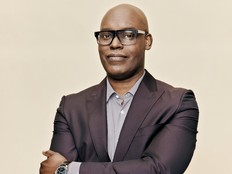McCAUGHEY: America pivoting toward true colour-blind justice

Article content
Interviewing for a job or competing for a promotion just got fairer. In a unanimous ruling on June 5, the U.S. Supreme Court levelled the legal playing field, saying everyone deserves the same protection from discrimination, including straight white women and men.
In the six decades since Martin Luther King Jr. uttered the aspiration that people should be judged by the “content of their character,” this country has moved in the opposite direction. Racial preferences, diversity, equity and inclusion (DEI) programs and quotas favouring women, LGBTQ+ and other groups replaced judging each individual.
The average white man or woman has been getting the shaft in corporate hiring, college admissions or even becoming a government supplier.
Now, that is changing. Recent events, including the Trump administration’s bold disavowal of DEI and discriminatory practices in hiring and promotion, and the ruling in Ames v. Ohio on June 5, suggest America is not doomed to be a hopelessly divided, caste society where group identity trumps an individual’s essence.
Could it be that we are starting to move in the right direction? Where each individual can succeed on their merits? Marlean Ames’ win on June 5 is a step forward.
Ames, a 61-year-old white heterosexual woman, sued the Ohio Department of Youth Services, where she had worked since 2004. Despite getting favourable reviews and promotions, in 2019, she was turned down for a higher position that went to a lesbian woman. Then Ames was demoted and her role was replaced by a gay man. She alleged discrimination based on her heterosexuality.
Lower federal courts rejected Ames’ claim, saying that because she is part of a majority group — heterosexual white women — she had a higher burden of proof than a minority would have.
But the Supreme Court ruled that having different standards for majority and minority groups violates Title VII, the portion of the landmark Civil Rights Act that outlawed workplace discrimination. Ames still must prove her case in the lower courts, but she will be treated the same as any minority group member alleging discrimination, not facing what Justice Ketanji Brown Jackson termed a “heightened standard” of evidence.
The court’s ruling will reverberate in nearly half the federal courts across America. In the 6th Circuit and four other circuits, that double standard prevailed until now. Kudos to the court for rejecting that two-tiered system of justice.
Reverse discrimination is as bad as any other kind. Proving it shouldn’t be harder.
Amen.
We are in a new era that began with the Supreme Court’s rulings in 2023 that struck down reverse discrimination at Harvard and the University of North Carolina.
After George Floyd’s death in 2020, many companies launched ambitious efforts to diversify their workforces. Though well-intentioned, they caused resentment and violated the nation’s bedrock principle of colorblind equality.
The justices’ ruling against Harvard sent a signal to the corporate world to change course.
Credit also goes to politicians, including Donald J. Trump, consumers and even corporate shareholders challenging DEI.
Major companies began rolling back their DEI programs. Lowe’s was one of the first. Now the company says it wants to be a “unifier.”
Citigroup told employees in February that it was abandoning its DEI initiatives, including precise numerical goals for managing directors. It cited the new White House policy.
Home Depot, Google, Goldman Sachs, Bank of America and many others have publicly scrapped hiring goals based on race, ethnicity, sex or gender.
It’s a big change from the recent past, when a young white man graduating from college had to worry that none of the internships and training programs at the big financial institutions and other corporate giants would even consider him.
It’s good news for everyone, not just him. The six decades of concocted preferences— since King’s famous “content of their character” speech — and the harm caused should teach us that treating people differently based on the group they belong to is a mistake.
Reverse discrimination, however well-intentioned, inflicts new injustices.
As Ames said, “We’re trying to make this a level playing field for everyone. Not just for a white woman in Ohio.”
It is also reassuring that the unanimous opinion in the Ames case was crafted by Jackson, the most liberal member of the court and herself often considered a DEI pick. Another sign that America may be coming together on the need to end such distinctions altogether, whether invidious or virtuous in intent.
Betsy McCaughey is a former Lt. Governor of New York State











Postmedia is committed to maintaining a lively but civil forum for discussion. Please keep comments relevant and respectful. Comments may take up to an hour to appear on the site. You will receive an email if there is a reply to your comment, an update to a thread you follow or if a user you follow comments. Visit our Community Guidelines for more information.